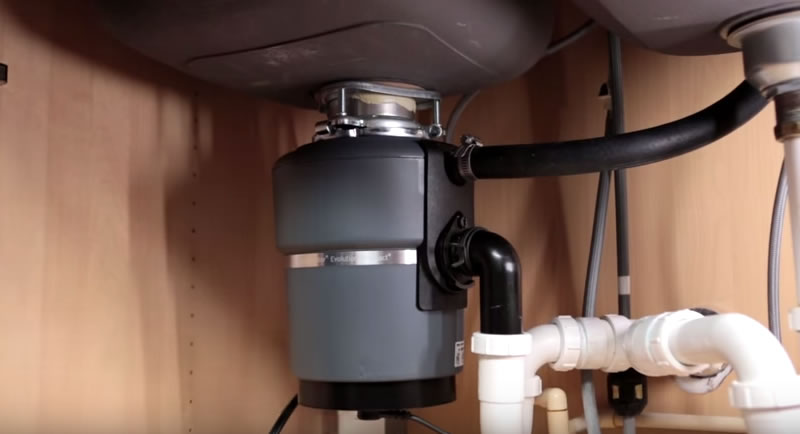Call This Wednesday to Get $25 OFF
Clean Solutions, Dirty Jobs – Done Right. Reliable. Responsive. Remarkable.
Call This Wednesday to Get $25 OFF
Clean Solutions, Dirty Jobs – Done Right. Reliable. Responsive. Remarkable.
Proper disposal of waste is a central part of sanitation and health in any environment. Most homes and buildings in the United States are connected to a centralized sewer system, but the remainders are on their own to figure out their waste disposal system. Most of these homeowners and business owners go with septic systems. At Septic Connection, we get a lot of questions about septic tanks and one specific question we have been getting is about garbage disposals. What is the effect of a garbage disposal if you own a septic system?

A septic system is an on-site waste treatment facility with two main components: a septic tank and a drain field. Waste and wastewater from the home leads through an inlet pipe into the septic tank. In the septic tank, waste is separated into three layers: top layer of scum, middle layer of wastewater, and a bottom layer of solid waste. The wastewater is readily transported through an outlet pipe into the drain field, an area in the yard where wastewater percolates through the soil for treatment. Meanwhile, the solid waste and scum in the septic tank is broken down by bacteria into sludge. Eventually, this sludge is pumped or cleaned out so that the septic tank does not overload.
Garbage disposals break down food waste into smaller pieces that are less likely to cause blockages in the plumbing system. This device is helpful but can turn into a liability. Owners of garbage disposals are susceptible to complacency and over-reliance on these devices. Tossing anything and everything into the garbage disposal can turn into a problem, especially if you own a septic system. For example, while an average homeowner might toss food scraps into the trash and pour fats and greases into a special bin, a homeowner with a garbage disposal might toss it all into the garbage disposal.
Tossing any and every food scrap into the garbage disposal can be harmful to your plumbing system and will burden the vital bacteria in the septic tank. So, a garbage disposal can turn into a liability if you end up depending too much on the device.
As you know, greases and fats have different physical properties at different temperatures. While hot fats, oils, and greases (FOG) are liquid, they harden when they cool down. Pouring these down into plumbing systems are problematic for this reason; they can harden in the pipes and cause clogs. Meanwhile, the ground up food particles make their way into the septic tank where they must be broken down into sludge. Too much solid waste can overwork the bacteria and lead to a septic tank that fills too quickly.
The septic system is an onsite waste treatment facility, and it is incredibly reliable. However, the system is only as effective…
Imagine flushing your toilet and then suddenly realizing that your backyard has turned into a swampy mess. This unpleasant experience is…
Soil testing is a critical step in various construction and environmental projects. It provides essential information about the ground conditions, which…
Grease traps are remarkable tools that help keep your establishment clean and free from bad odors. Septic Connection has a…
If you have just moved into a new home or property that relies on a septic system for waste and wastewater…
Rather than toss anything and everything into the garbage disposal, consider your garbage disposal unit to be an extra line of defense. Continue to toss food scraps into the trash bin and separate FOG into a separate container but let the garbage disposal handle anything leftover. If you have any questions or concerns regarding your septic system, feel free to call the professionals at Septic Connection for any type of septic tank pumping, cleaning, repair & inspection services in your area.
When septic problems start, many homeowners look for quick and inexpensive solutions. Online videos, store-bought additives, and advice from well-meaning neighbors can make do-it-yourself septic fixes seem appealing. Unfortunately, septic…
Read moreA septic system is one of the most important—and most overlooked—components of a home. It manages wastewater quietly in the background, so many homeowners assume everything is fine until a…
Read more